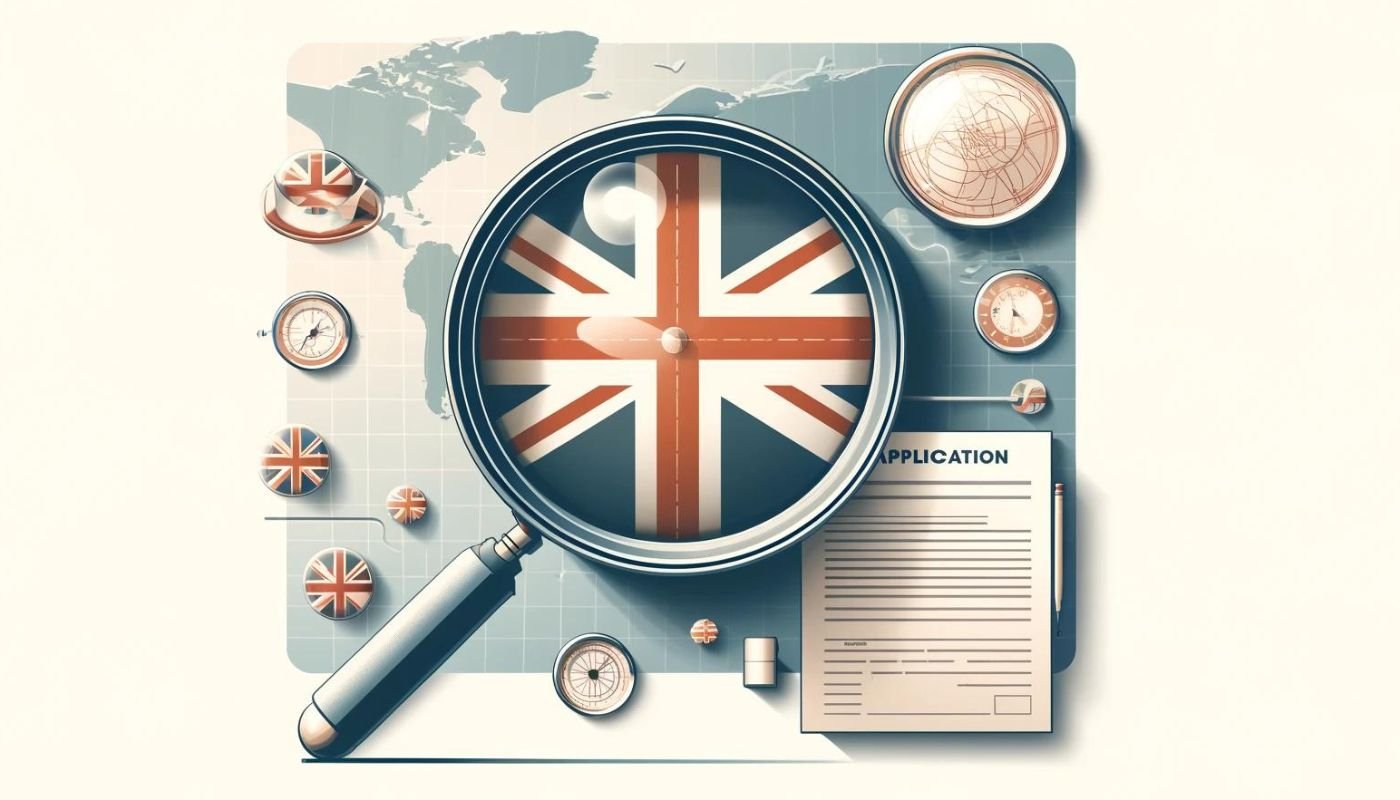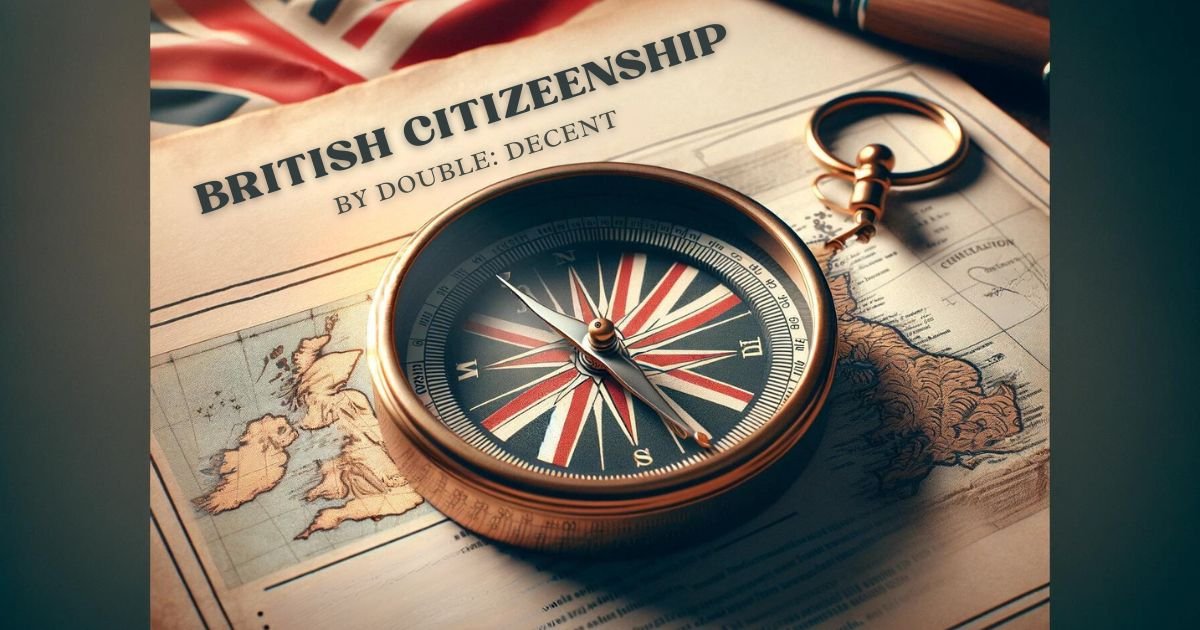How to Apply for British Citizenship by Double Descent
When applying for British citizenship individuals may find themselves with a difficult choice to make between which route applies to their unique case, as each British citizenship route has its unique requirements and legal criteria. British citizenship is usually obtained via one of two routes: by descent or naturalisation. British Citizenship by decent means that individuals born outside the UK to British parents, may be eligible to claim citizenship, as their lineage offers a direct route to satisfying the requirements needed. British Citizenship by naturalisation includes a wider variety of individuals aiming to apply for citizenship, visa routes such as a spouse or skilled workers, or the likes of long residency in the UK.
Key Takeaways
Key Points |
Description |
|---|---|
| British Citizenship by Descent | Eligibility for those born outside the UK to British parents. |
| Double Descent | A pathway involving British grandparents under certain conditions. |
| Eligibility Criteria | Varied based on birth date and parental citizenship status. |
| Alternatives | The Ancestry Visa can be a potential route. |
What is British Citizenship by Descent?
British citizenship by descent allows individuals born outside the UK to inherit citizenship through their British parent. This pathway is eligible to those who meet the given requirements, even when born abroad, meaning they can claim British citizenship. It generally applies to the first generation born outside Britain, governed by straightforward rules on parental citizenship.
When Does Double Descent Apply?
British citizenship via Double descent is a much complex and niche route designed for those aiming to claim British citizenship through a grandparent. This approach looks deeper into family lineage, extending beyond immediate parents to British grandparents. According to the British Nationality Act of 1981, the usual basis for obtaining citizenship from birth outside the UK is having a parent who is a British citizen “otherwise than by descent”. However, certain exceptions can facilitate claims of double descent, incorporating historical and personal circumstances that might allow second-generation descendants born abroad to qualify for British citizenship.
Key Document Requirements
The process of claiming British citizenship by descent necessitates the applicant to gather a variety of key documents for the application, which are crucial for establishing the required familial connection. These documents typically include but are nor limited to:
- Birth Certificates: To prove the applicant’s birth and lineage.
- Marriage Certificates (if applicable): To document the marital status of parents or grandparents, relevant in some cases of citizenship claims.
- Evidence of British Parent or Grandparent’s Citizenship: Such as their birth certificate, citizenship certificate, or passport details, providing proof of their British nationality.
These documents form the foundation of an application for British citizenship by descent. The eligibility for claiming citizenship by descent is largely dependant on presenting clear, unambiguous evidence of the applicants British heritage through parental or grandparental lineage.
Eligibility Criteria for British Citizenship by Double Descent
The eligibility for British citizenship by double descent requires the applicant having an understanding of the distinct criteria based on the applicant’s date of birth. The British Nationality Act of 1981 lays out these requirements, which vary significantly for those born before and after 1st January 1983.
A. Requirements For Applicants Born After 1st January 1983
For individuals born after this date, their eligibility is based on specific circumstances related to their grandparents and the nature of their parents’ citizenship. The conditions include:
- Grandparent in Crown Service: Eligibility if the applicant’s UK-born grandfather was serving in the Crown Service at the time of their parent’s birth.
- Birth in a Former British Colony: If the applicant or their parent was born in a former British colony, this may qualify them for citizenship by double descent.
- British-born Mother: If the applicant’s British-born mother was registered as a British citizen between 2nd February and 31st December 1982, this offers a route to citizenship.
B. Requirements For Applicants Born Before 1st January 1983
Individuals born before 1983 may also have potential routes to British citizenship by double descent in which they can apply for under conditions that reflect historical links to Britain and its former territories. These include:
- Former British Territories: Eligibility if the applicant or their parent was born in a former British territory, excluding main Commonwealth countries of 1949.
- Parent in Crown Service: Similar to those born after 1983, if the applicant’s parent was in the Crown Service at the time of their birth, this may qualify them.
- Marriage Before 1949: If the applicant’s parents were married before 1949 and their father was born in the UK, this is another potential route.
- Non-EEA Birth with British Maternal Grandfather: Eligibility for individuals born outside the European Economic Area (EEA) if their mother’s father was born in the UK.
These mores strict and specific criteria demonstrate the complexity of applying for British citizenship by double descent. Each case requires careful consideration of historical and legal nuances.
Given the extreme complexity of the Double Decent application, we highly recommend that if you are aiming to apply for British citizenship by double decent that you contact one of our Expert Immigration Solicitors, who specialise in all citizenship applications. We can help you achieve your immigration goal.
We’re Just 1 Call Away, So Don’t Hesitate, Contact Us Today!
If You Need Any Assistance Or Legal Advice For Your Citizenship Application, Contact Our Specialist UK Immigration Solicitors Today!
Contact Primus Solicitors for professional, specialist legal advice with your UK Legal query.
How Can Primus Solicitors Help With My Citizenship Application?
The process of establishing British citizenship, especially by double descent, is very intricate and layered with historical and legal complexities. For individuals aiming to satisfy the requirements through a British parent or grandparent, or those with ties to the UK via the Crown Service, the application process involves navigating a variety of regulations and exceptions, which is why instructing one of our specialist immigration solicitors can pivotal:
Specialist in Immigration Law
- Complex Legal Frameworks: British nationality law is very information dense, with numerous amendments and exceptions that can affect eligibility. Our Immigration experts at Primus Solicitors have extensive knowledge and the necessary experience required to interpret these laws accurately.
- Tailored Advice: Each application for citizenship by double descent is unique. Our Specialists can provide personalised guidance, ensuring that applicants understand their specific circumstances and eligibility.
Strengthening Your Application
- Document Preparation: The success of a citizenship application is often dependant on the thoroughness and accuracy of the documentation provided. Our experts can help you gather and organise the necessary paperwork, from birth certificates to evidence of a grandparent’s British citizenship to help you maximise the likelihood of a positive outcome for your application.
- Overcoming Challenges: If issues do arise during the application process, having an expert immigration solicitor and advisor can be invaluable. We can address inquiries from the Home Office, clarify complex legal points, and help overcome obstacles that might otherwise delay or jeopardise an application.
Making the Most of Your Claim
- Maximising Chances of Success: With the high cost of application fees and the significant impact of obtaining British citizenship, ensuring your application is robust and complete is crucial. Immigration specialists can enhance the strength of your claim, potentially saving time and money by avoiding common pitfalls.

How to Apply for British Citizenship by Double Descent
Applying for British citizenship by double descent is quite similar to the general application process for British citizenship, however, the double decent application includes additional requirements concerning documentation and evidence of lineage. Below we’ve broken down the application process into a step by step guide.
Application Process Step-by-Step
- Determine Eligibility: Before starting the application, you should confirm your eligibility for citizenship by double descent, considering the criteria for those born before or after 1st January 1983.
- Gather Documentation: Compiling a clear and comprehensive set of documents, including your birth certificate, your parent’s and grandparent’s birth certificates, marriage certificates (if applicable), and evidence of your grandparent’s British citizenship status or Crown Service, will be needed for the application.
- Submit Additional Evidence: Given the nature of double descent citizenship, you may be required to submit additional evidence proving your claim. This could include historical records or legal documents outlining your grandparent’s connection to the UK.
- Pay the Fee: Application fees for British citizenship can be high, so verify the current cost and ensure payment is made correctly to avoid delays.
- Biometric Information: Applicants may need to provide biometric information (fingerprints and a photo) as part of their application.
- Attend an Interview: In some cases, you might be asked to attend an interview to discuss your application and heritage.
Double Decent Application Processing Time and Potential Delays
Typical Processing Time: The processing time for citizenship applications is approximately 6 months, but this can vary based on the complexity of your case and the volume of applications being handled.
Expect Delays: Given the additional scrutiny required for double descent applications, applicants should expect and be prepared for possible home office time delays. The Home Office may request further information, necessitating prompt responses to avoid prolonging the process.
Citizenship Ceremony
For Applicants Over 18: If your application is successful, and you’re over the age of 18, you’ll be invited to attend a citizenship ceremony. This final step involves taking an oath of allegiance to the UK, marking the formal grant of British citizenship.
Alternatives to Double Descent British Citizenship
While pursuing British citizenship by double descent is a viable pathway for many, it’s important to recognise alternatives that may suit different circumstances or eligibility criteria. One possible option is the UK Ancestry Visa, which provides a route for individuals with British ancestry to live and work in the UK, potentially leading to citizenship.
The UK Ancestry Visa
This visa is designed for Commonwealth citizens with a grandparent born in the UK, the Channel Islands, the Isle of Man, or in what was then a British territory.
- Age Requirement: Applicants must be 17 years or older.
- Commonwealth Citizenship: You must be a Commonwealth citizen to apply.
- Direct Ancestry: Having a grandparent born in the specified regions or under certain conditions, such as on a British-registered ship or aircraft.
- Intent to Work: Applicants should intend to work or be self-employed in the UK.
- Financial Requirement: Proof of financial ability to support oneself (and any dependents) without recourse to public funds.
Benefits and Pathways
- Duration and Renewal: The Ancestry Visa is initially granted for 5 years, after which applicants can apply to extend or seek permanent residency, eventually leading to citizenship.
- Family Inclusion: Dependents can accompany or join the visa holder in the UK, provided financial support is demonstrated.
- Work and Study: Visa holders have the right to work, study, and even start a business in the UK.
Application Process
Applying for the UK Ancestry Visa involves:
- Documentation: Gathering evidence of your ancestry, financial means, and intention to work.
- Application: Completing the application online, followed by submitting biometric information.
- Fees: Payment of the ancestry visa application fee is £637 (as of the last update) plus the immigration healthcare surcharge.
The Ancestry Visa offers a practical alternative for those who might not meet the criteria for citizenship by double descent but still have significant ties to the UK. It’s an advantageous route for Commonwealth citizens seeking to explore their British heritage while enjoying the benefits of living, working, and potentially settling in the UK.
Conclusion
The immigration process to British citizenship, whether through double descent, descent, or alternative routes like the Ancestry Visa, is intricate and full with legal and procedural nuances. Each route presents its own set of challenges and requirements. If your in need of professional guidance for your citizenship application, contact our team today.

